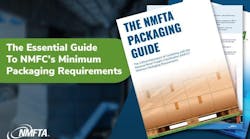Some economists and market analysts think the economy has hit the brakes. If they are right, presumably trucking companies should do the same — stop hiring, cancel new equipment orders, prepare for leaner times. How good is the evidence that the economy is skidding?
The stock market, which is supposedly a reliable indicator of the direction of the economy, has stalled in the last couple of months after earlier advances. Payroll employment increased by an average of just over 100,000 jobs per month in the second quarter, following much larger gains in the first quarter. Retail sales have turned lackluster, with the formerly Big Three automakers looking punier by the month.
Most ominous of all, at least by some accounts, is the downturn in housing. Building permits, housing starts, residential construction spending, and sales of both new and existing homes all seem to be headed downward after bobbing up and down earlier in the year. Housing, in turn, is seen as the catalyst for building materials, furniture, appliances, house and garden retail, and other activity. As these sectors slow, so will demand for trucking services.
But it seems more likely that the economy has merely downshifted to a lower gear, not slammed on the brakes. In fact, some sectors are gaining momentum. Consider the supposedly ailing manufacturing sector. New orders for U.S. manufactured goods rose 7.8% in the first five months of 2006, compared to the same period in 2005, and manufacturing employment has been on the upswing since last October.
Nonresidential construction spending rose at a 12% rate in January through May, compared to those months in 2005. Granted, part of the increase was due to higher materials prices. Nevertheless, the construction industry increased employment at more than double the rate of employment in the overall nonfarm sector.
Manufacturing and nonresidential construction both generate huge demand for trucking. Other buoyant sectors are not closely identified with trucking directly but contribute to a growing economy, job formation, and other factors that will keep trucks rolling.
For instance, the mining sector, from oil and natural gas to coal to minerals, has been booming. So have alternative energy and power sources: ethanol, biodiesel, wind farms, and experimental technologies. On the service side of the economy, sectors as diverse as state and local government, hotels and resorts, and air transportation are experiencing revenue surges after recent lean years.
In a survey of 170 business economists conducted in late June by the National Association for Business Economics, 60% predicted that GDP would increase at a 2-3% rate in the second half of 2006; nearly 30% predicted growth of 3-5%; and only 10% thought growth would fall short of 2%. Surveys of purchasing managers in roughly 400 manufacturing firms and 370 non-manufacturers conducted by the Institute for Supply Management also showed slowing, but still positive, economic activity.
Neither economists nor purchasing managers are clairvoyant. But the widespread optimism through a broad range of industries represented in the surveys suggests that problems in the economy remain quite limited.
The bottom line: Trucking executives who depend for freight on homebuilders or the occupants of the houses they sell may find the road is now descending steeply. But for most trucking segments, the economic road seems to be sloping upward, albeit at a gentler slope than before.


